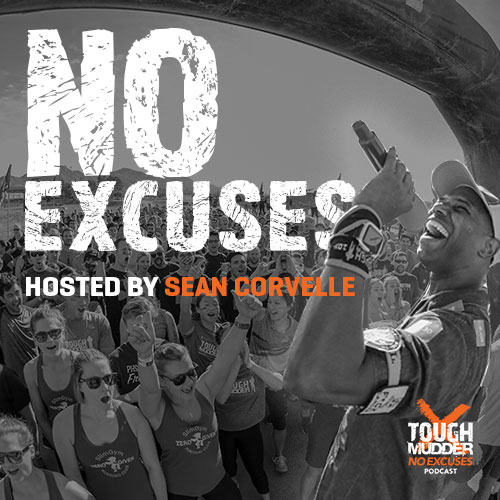In this episode, we sit down with World’s Toughest Mudder champion, Deanna Blegg. Deanna discusses her journey with HIV and breast cancer, her passion for travel, her experiences as an athlete, and so much more. This is our No Excuses podcast episode 58 with Deanna Blegg.
Read more about Deanna’s story here.
Connect with Deanna on Social:
-Instagram: @deanna.blegg
-Facebook: Deanna Blegg | BleggMit
-Website: bleggmit.com.au
Listen Now

A LOOK INSIDE THE EPISODE:
TM: You are one of the people that helped form how Tough Mudder is in competition, helping and being supportive of each other. Can you tell us about that?
D: It’s beautiful. I think Tough Mudder brings that out in everyone. I think that’s what I love about it so much, and why I just love World’s Toughest Mudder so much is because I’ve never been in such an environment where everyone is so supportive and helping each other. I love all the sports that I’ve done, but like when you’re adventure racing and you’ll always look after your other competitors, and cheer them on, but you’re all fighting for that kind of end goal. Whereas, World’s Toughest Mudder the majority of people are just out there to do the best that they can, which is the pinnacle, but to help others do the best that they can and I just love being in that environment of care and support. What other race do you go lap after lap where people are chatting to each other, encouraging each other. It’s just something special and I really miss it, actually.
TM: How did you get yourself out of feeling alone after your diagnosis?
D: When you’re alone, there’s darkness and the feeling of no hope. You don’t have support or any support structure in place. I have that natural instinct. I believe in myself and I’m a solution focus, not a problem focused, sort of person. So if I come across a problem, I’m like, “Alright, how do we make this all better?” When you’re given a shortened lifespan and when you’re diagnosed with an illness that has that stigma attached to it, it’s hard to find hope. The counselor said, “Be careful with who you tell.” I wanted to just go to tell my friends and family straightaway, this has happened, but he said to just be careful because there’s that stigma, and they may turn and that sort of thing.
I just thought, well, I don’t have long to live. This is what went through my head. I’ve got a shortened life. I want to cram that life full of good fun stuff. So what do I love doing? I love traveling. So I went back to work, saved some money again, I was over in London at the time and I didn’t want to come back home to Australia because when you’re in Australia, especially back then, you are isolated and stuck there and plane tickets out of this place were really expensive. So I just thought if I go back home, there’s no way I’m getting out of here again. So I said, “Well, I’m going to go and travel again.” I love traveling and that’s where I find myself. I just put my health on the back burner and thought, “Well, quality, not quantity.” So back to Africa, I went.

